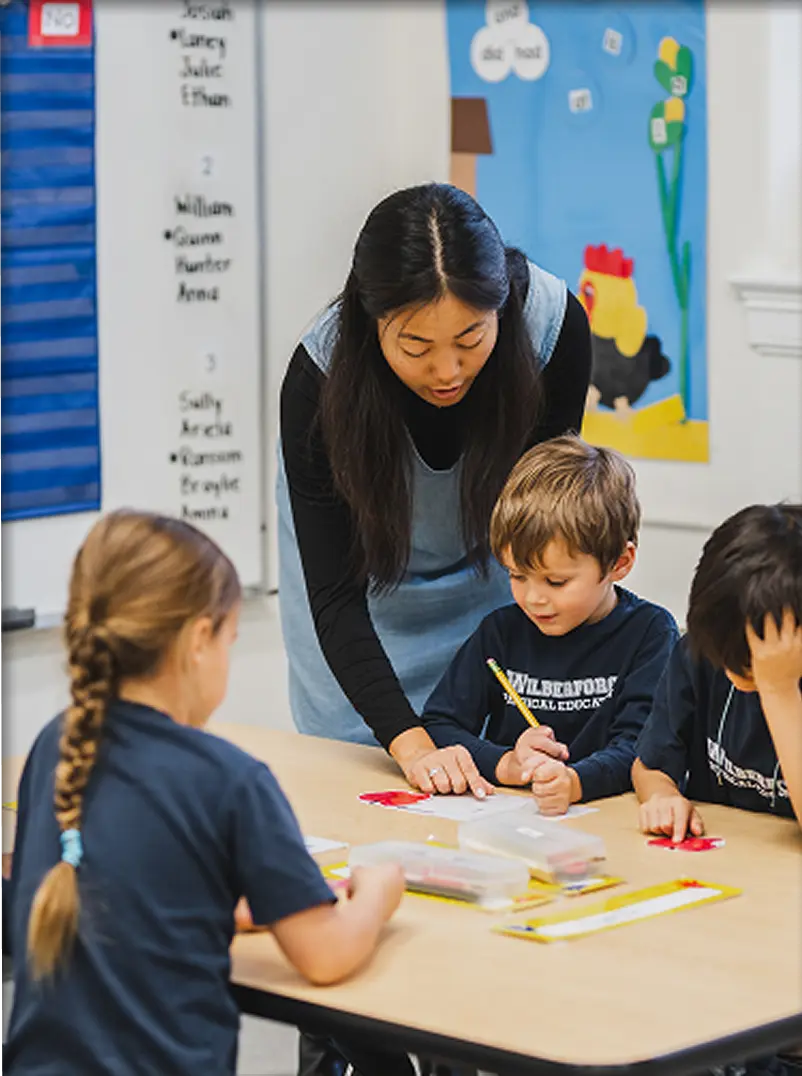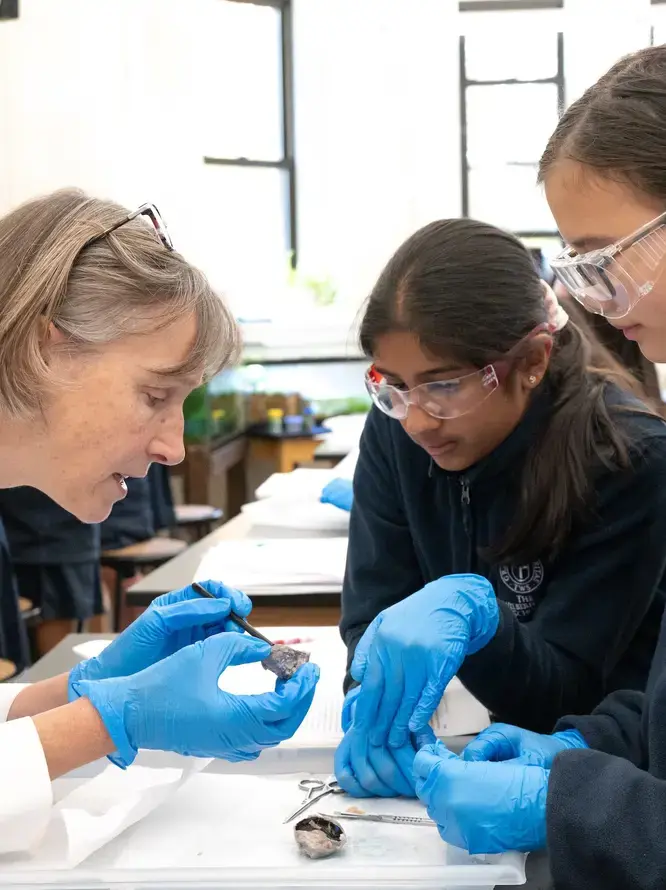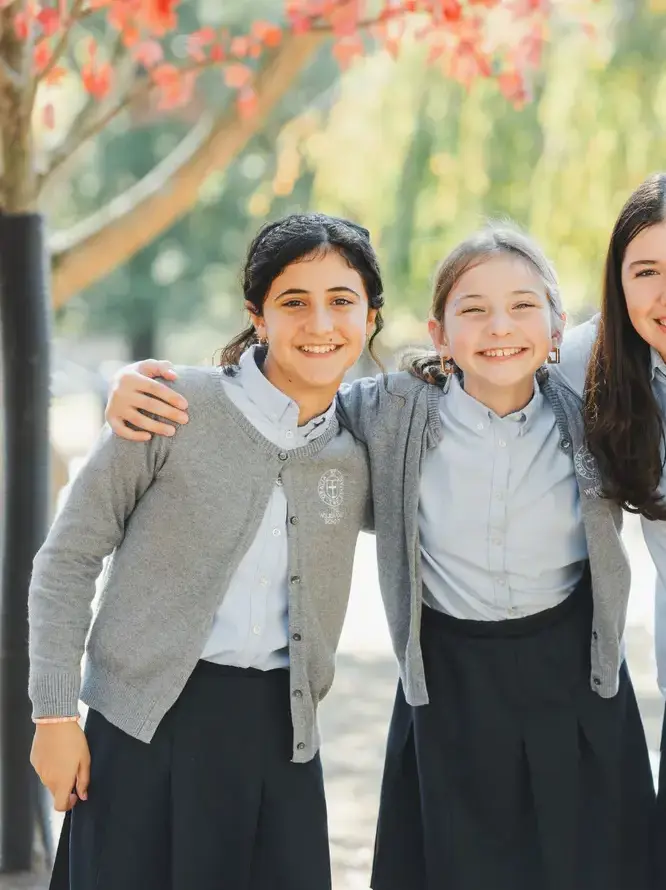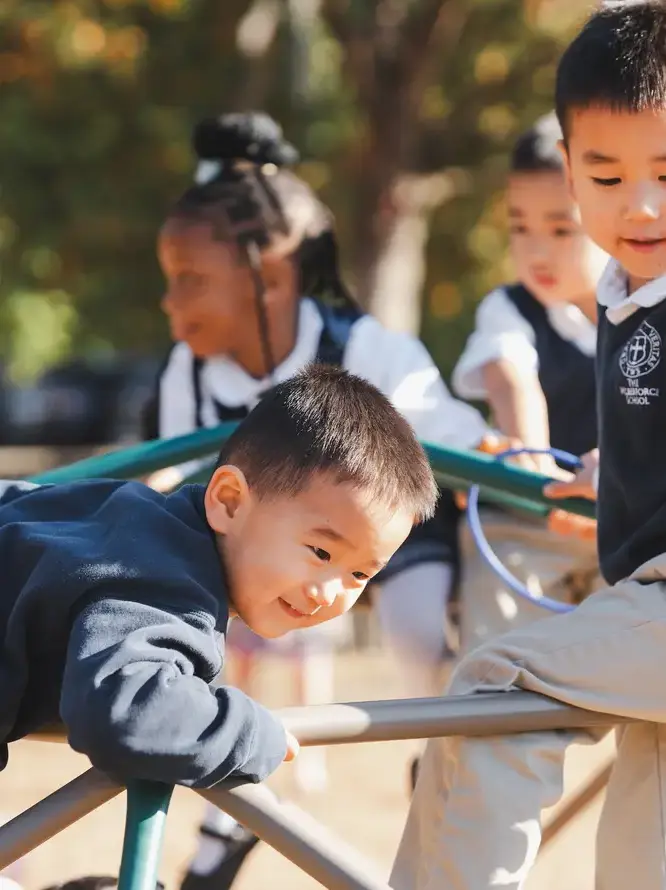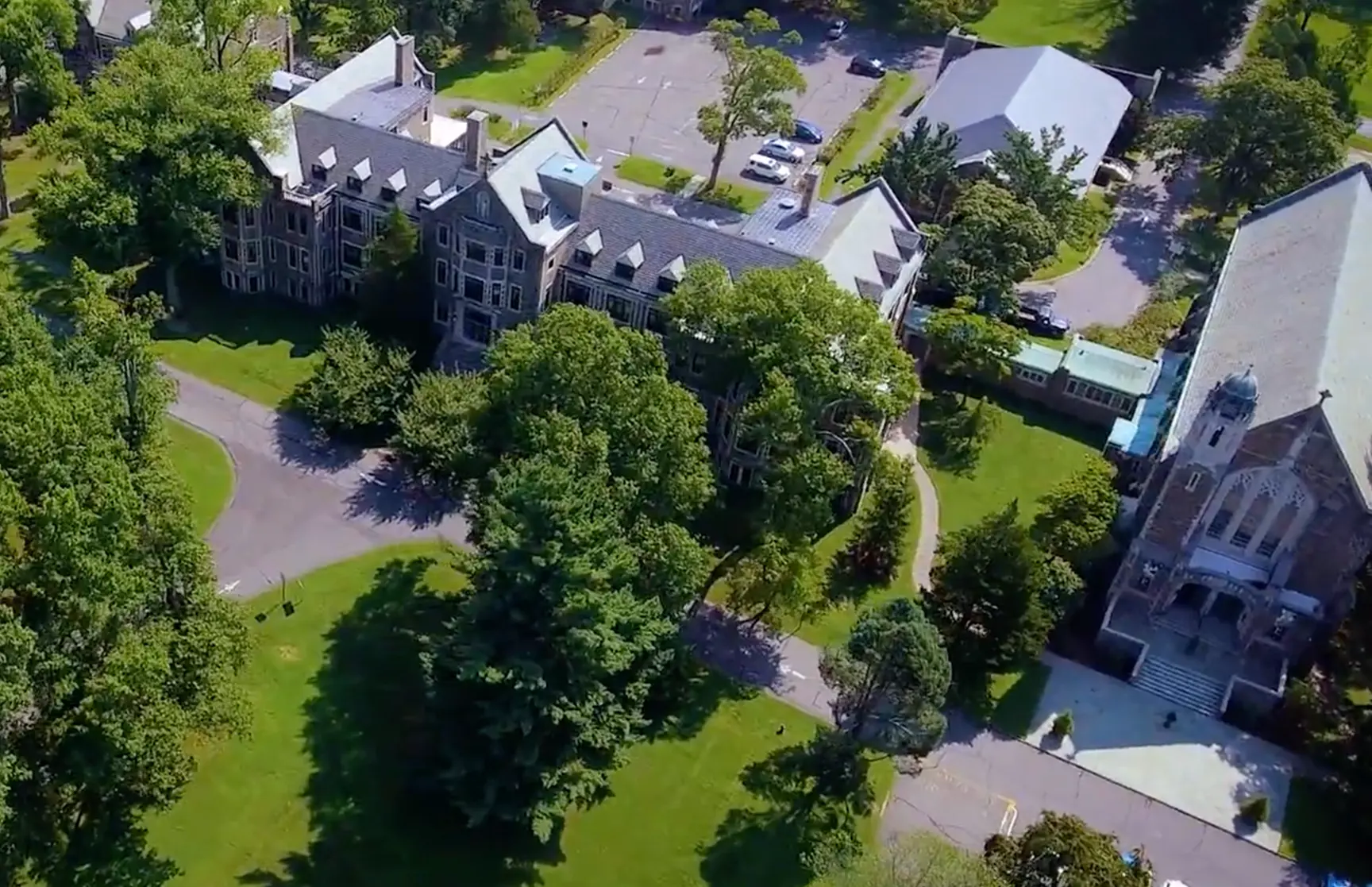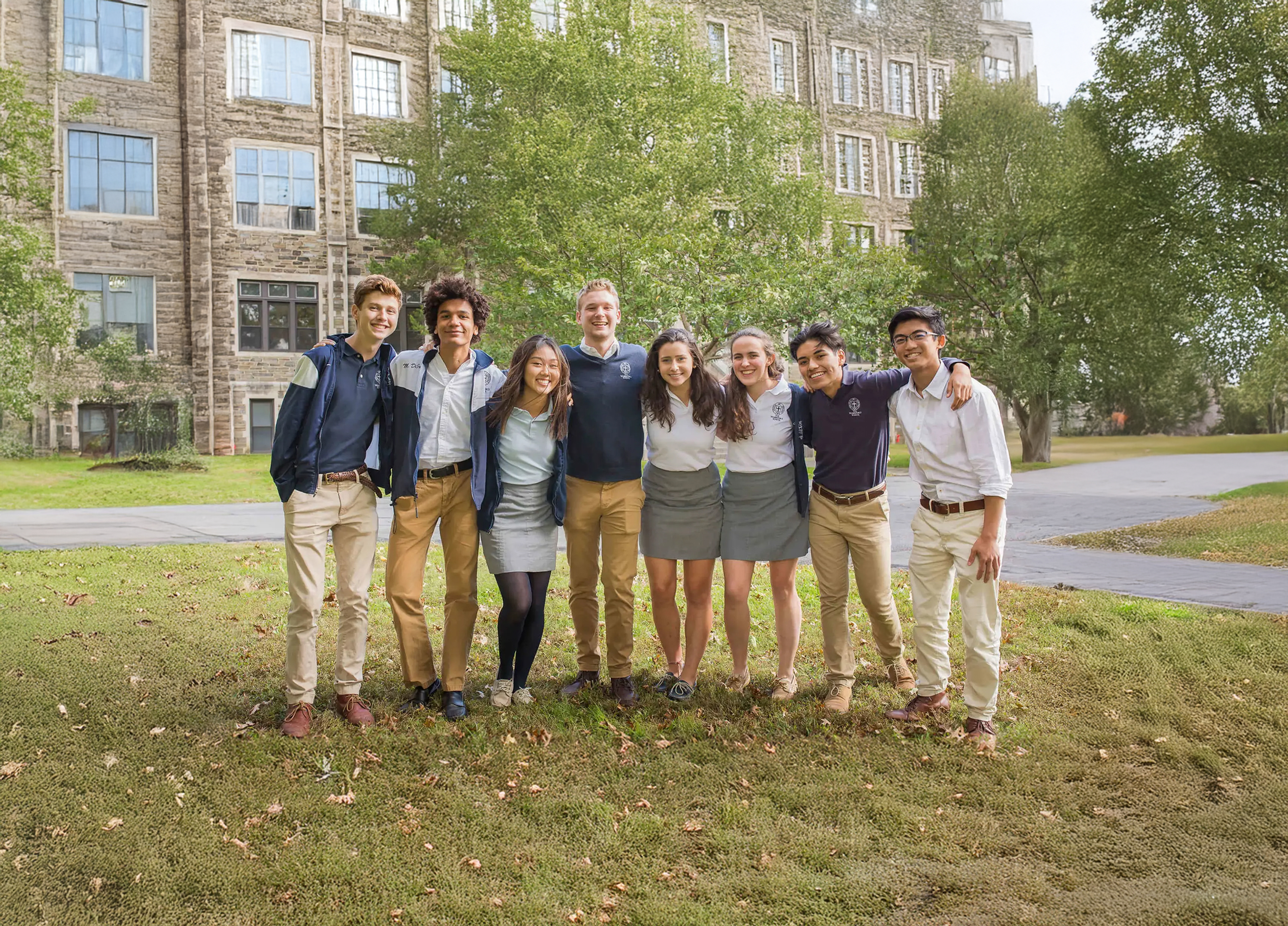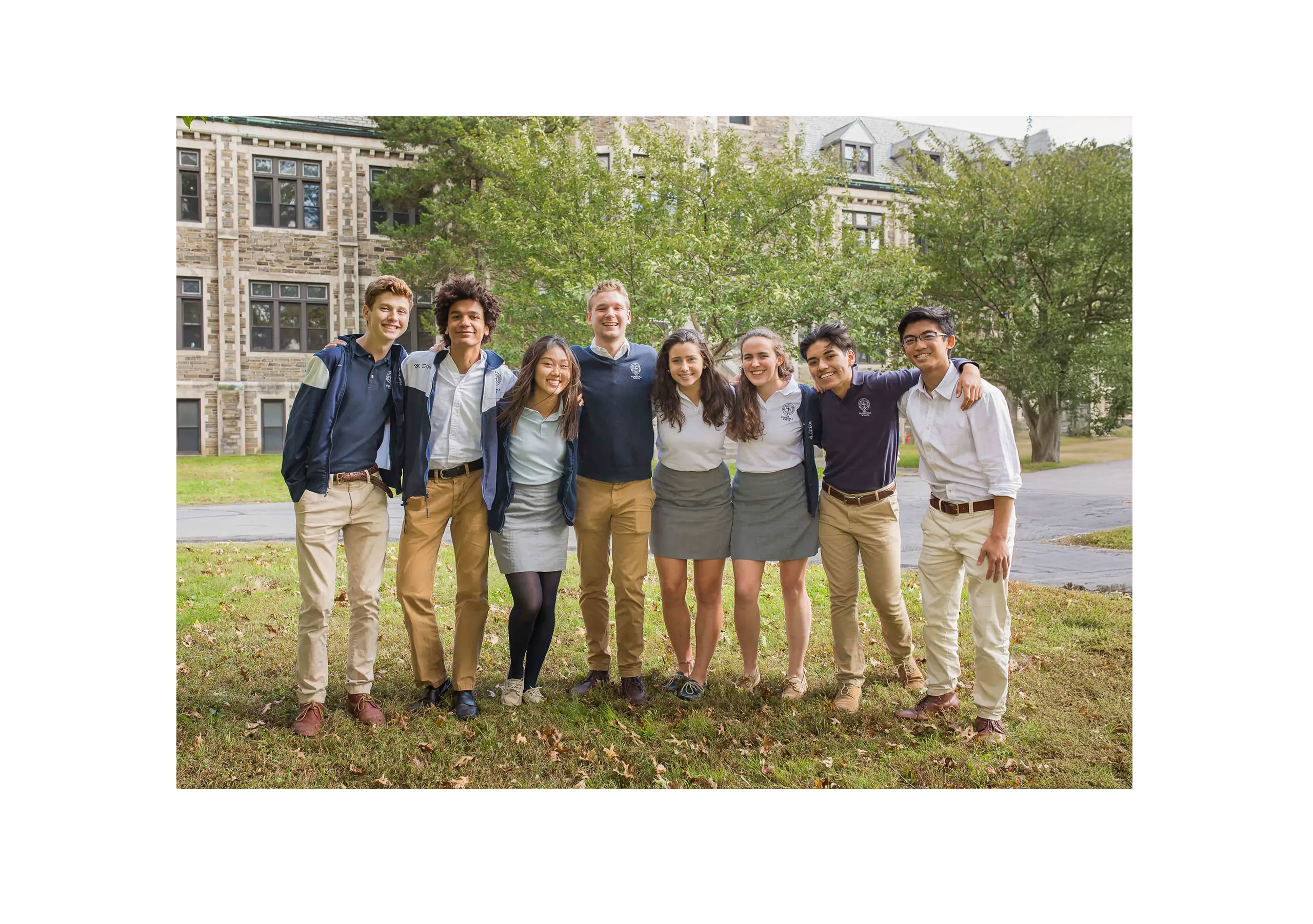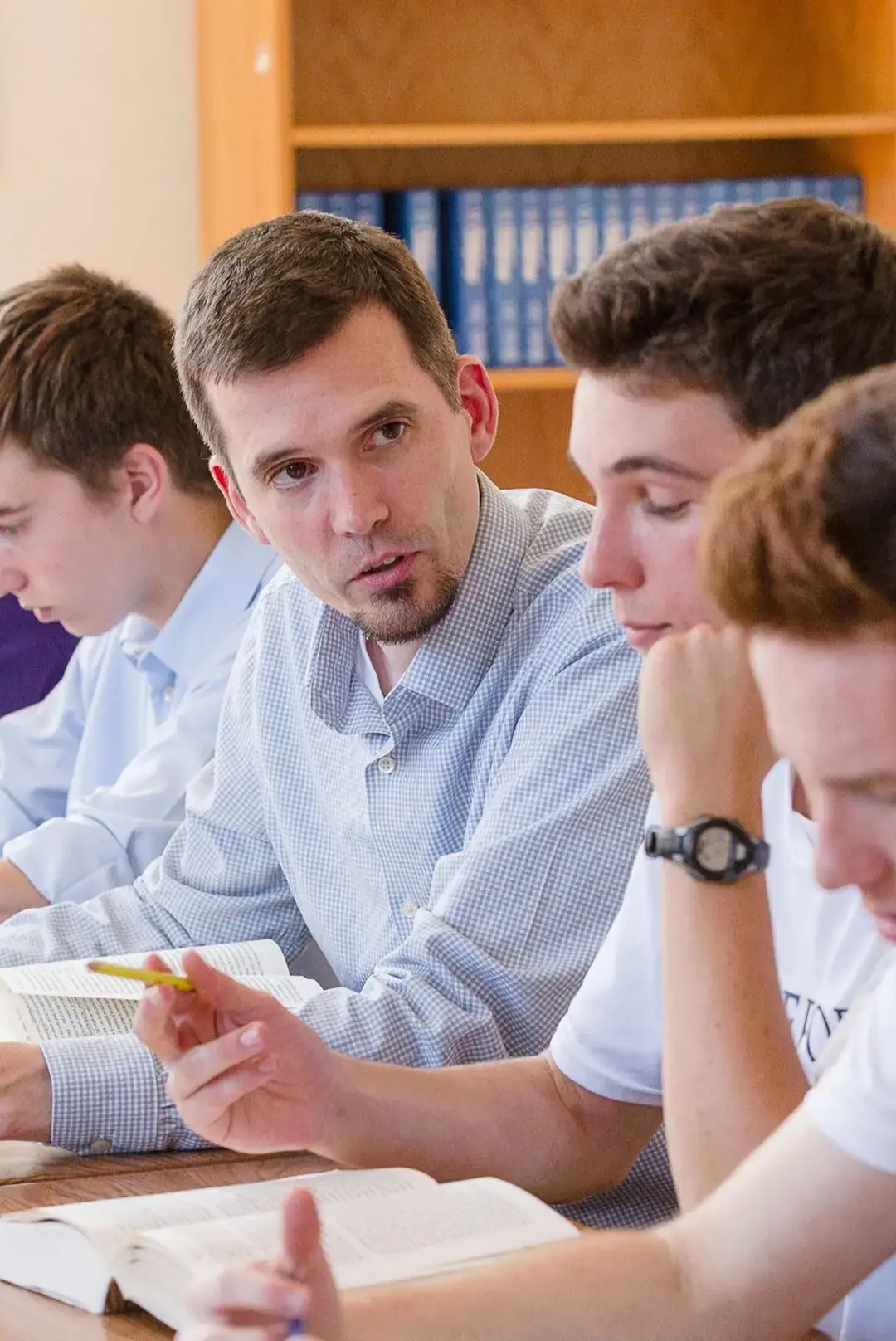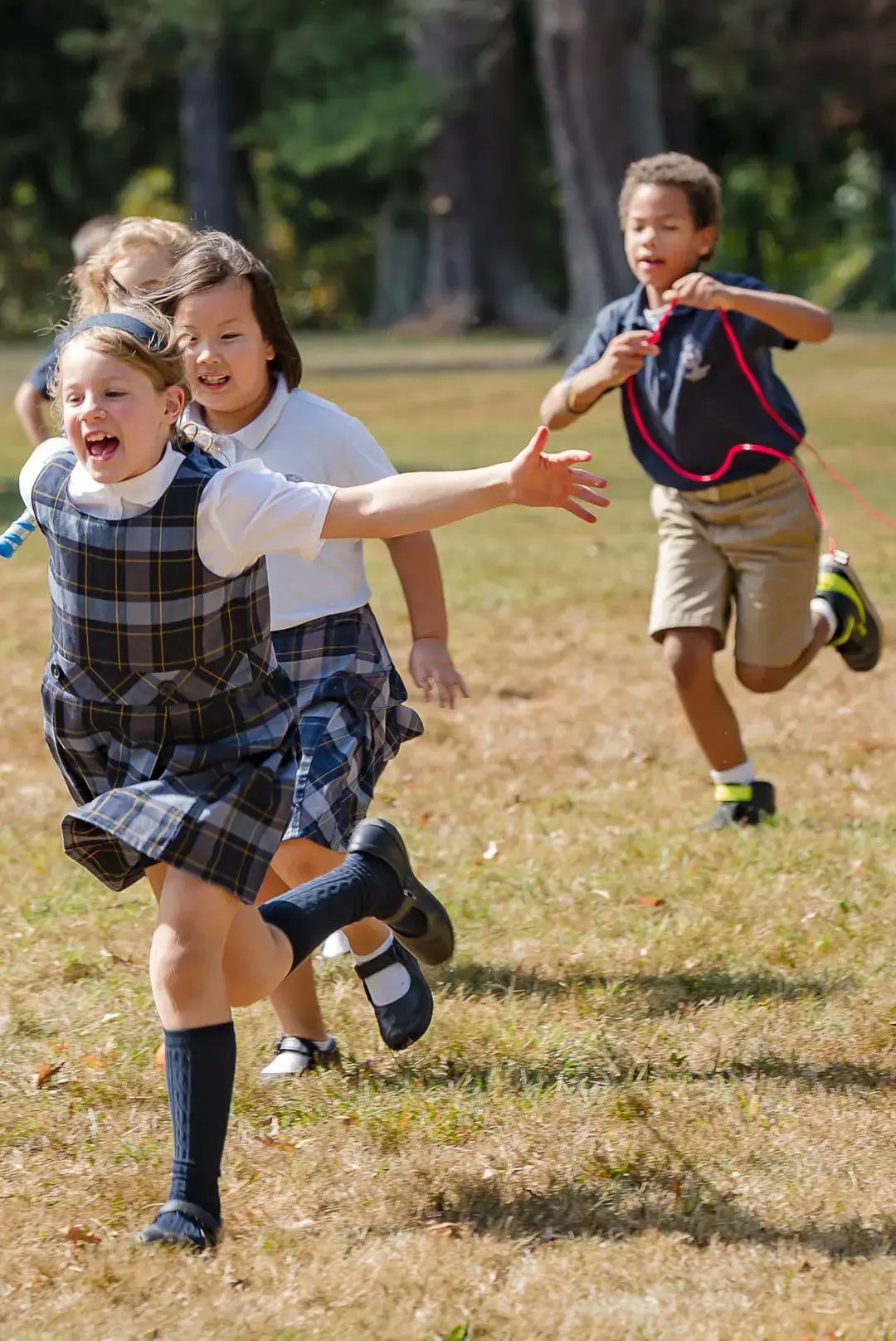WELCOME
The Wilberforce School was founded to provide a distinctively Christian education characterized by academic excellence and joyful discovery within a classical framework.
| Distinctively Christian Education | Academic Excellence |
| Joyful Discovery | Classical Framework |
An outstanding strength of Wilberforce is a visionary leadership team with the skills and energy to drive Wilberforce into the 21st century as a model Classical Christian school of the future.- Middle States Visiting Team |
| Accreditation |
|---|
| The Wilberforce School is accredited by Middle States Association of Colleges and Schools. |
| Affiliations |
Statement of Faith
The foundation of a Wilberforce education is our partnership with parents in rooting and establishing our students in the Christian faith. Our shared convictions are woven into all of our curriculum, and define our entire school community.
As such, we require all Lower and Middle School families to affirm our Statement of Faith*, and expect all Upper School students to take ownership of their faith themselves.
Our school Statement of Faith* covers the basic doctrines of historic, orthodox Christianity. Our school community is made up of Christians coming from different traditions of the church; together we all affirm these truths and partner with one another in training up our children in the way they should go (Proverbs 22:6).
*This is an abbreviated version of our school's Statement of Faith, a full version is included in the Admissions Applications.
Truth is truth however learned. But while truth is truth however learned, the bearing of truth, the meaning of truth, the purpose of truth, even in the sphere of mathematics, seem entirely different to the Christian from that which they seem to the non-Christian; and that is why a truly Christian education is possible only when Christian conviction underlies not a part, but all, of the curriculum of the school.- J Gresham Machen, Education, Christianity |
Distinctively Christian Education
At The Wilberforce School, our understanding of God as Creator and of His saving purposes in Jesus Christ undergirds all of our teaching and conduct. In providing a truly Christian education in NJ, we seek to nurture students who have a genuine love of learning, who are equipped to live as vibrant Christians, and who can articulate and defend the Christian message with clarity, creativity, and conviction.
We believe a Christian education should emphasize the following:
| Lordship |
|---|
| Honoring the Lordship of Jesus Christ over all things. Acknowledging that all truth, all beauty - everything in all creation – was created by Him, reflects Him, is sustained by Him, and exists for Him. |
| Worldview |
| Teaching from a rich curriculum that communicates and is held together by an orthodox, biblical view of the world. |
| Wisdom |
| Applying biblical truth to all of life so that the heart and mind of a student, quickened by the Holy Spirit, might know, love, and obey God. |
| Excellence |
| Doing everything with vigor and industry, as an act of worship to our God, with all our heart, mind, and strength. |
Academic Excellence
Our faith calls us to do all we undertake, wholeheartedly and with all our might, as an act of worship to God. Our desire is to see God at work in our school as God draws our students’ hearts to love Christ and shapes their minds to be active, vigorous, and informed by biblical truth. At Wilberforce, we place a high value on excellence and effort, and we give special emphasis to the following four learning components:
| Teachers |
|---|
| At Wilberforce, our teachers are held to the highest standards for academic excellence; simultaneously, teachers also foster students' spiritual growth, modeling the integration of faith and learning. |
| Students |
| We instill the importance of exceptional study habits into our students. This includes challenging them to use and develop their God-given gifts to their highest potential to the glory of God and in humble service to others. |
| Curricular |
| Students at Wilberforce engage with living books, internalize lessons from the great masters, and develop a deep love of learning within a classical framework. |
| Academic Pace |
| We offer a rigorous curriculum providing students with a challenging and rewarding learning experience. |
Joyful Discovery
At Wilberforce, we believe that children learn best with a balanced approach that is both experiential and disciplined, that engages both the mind and heart, that develops cognitive ability, igniting curiosity and passion. Many of the ideas and methods Charlotte Mason developed achieve this balance beautifully, and we have incorporated these tools in several ways:
| Language Eliciting Activities |
|---|
| Through narration, dictation, recitation, literature study, and picture study children describe - in oral and written form - what they have read, seen, experienced, or heard. In the process, they discover new ideas and learn to describe what they have understood, developing skills in reading, comprehension, writing, and expression. |
| Limited Hours in Early Grades |
| Wilberforce has half days for Explorers One (Junior Kindergarten) and Explorers Two (Kindergarten) and a half-day option on Monday, Wednesday, and Friday for students in Classes One and Two. We believe that at these young ages, everything we need to do academically can be done - and done well - in limited school hours, thereby freeing children to spend afternoons at home with their families and at play. Also, in Classes One and Two, we emphasize the major academic areas of reading and math during the morning when the students are fresh and alert. Afternoons are devoted to more creative activities such as music, art, and nature studies. |
| Cultivation of Good Habits |
| Recognizing that the early years are the time when children are forming habits, we emphasize developing habits of life and of scholarship, such as kindness, attentiveness, diligence, respect, order, and follow-through. Habits in young children not only establish their character but also become their future academic practice. We not only talk explicitly about these habits and their fruit, but we also incorporate them into the daily routines of the school. |
| Discovery of Living Ideas |
| We seek to bring ideas and history alive through biography, fiction, art, drama, exploration, and play. The books we read are carefully selected works of proven excellence that are age-appropriate both in reading level and content. We take advantage of a child’s capacity to memorize and their natural curiosity to discover. |
| Nature Study |
| We share Charlotte Mason’s conviction that contemplative study and exploration of God’s creation should not be dull or tedious but full of life and delightful discovery, for God has given us these things for our enjoyment. |
Classical Framework
In its embrace of the trivium, its emphasis on the classics, and its study of Latin, The Wilberforce School represents classical education. NJ students can receive a truly unique and comprehensive learning experience with our traditional educational framework.
Distinguished among other private schools in New Jersey and throughout the United States, The Wilberforce School of Princeton challenges its students through classical education. NJ parents and students can contact us for further information on curricula, pedagogical practices, educational resources, and teaching philosophies.
| The Trivium |
|---|
|
The trivium (Latin for “three ways”) is the core of a classical curriculum. It was practiced during Greco-Roman times, formalized in the Medieval and Renaissance periods, and nearly universally embraced by educators in the English-speaking world until the early 20th century. The three roads of the trivium offer three insights for educational practice:
|
| The Grammar Stage |
| Young children have a natural fondness for memorization and repetition. During this stage, children learn the facts or grammar of each subject through drills, songs, and rhymes. At Wilberforce, we see this as a unique time in a child’s life not only to master the rules of reading, writing, and math, but also to memorize scripture, poetry, and hymns. What distinguishes our approach from most classical schools is the combination of typical classical methods with those pioneered by Charlotte Mason. We use both self-discovery tools and memorization. We emphasize the importance of imaginative play and outdoor play in combination with desk work. We seek to engage the imagination as well as train the mind. |
| The Logic Stage |
| In the middle grades, children’s capacity for abstract thought expands rapidly. At this stage, they become attracted to argumentation and abstract ideas. The introduction of formal logic shifts the focus from mere facts to understanding relationships. Students learn to reason as they identify critical assumptions, logical fallacies, and inconsistencies. At Wilberforce, we believe this is a significant stage, not only to emphasize logic, but also to lift up the Lord, in whom all reasoning holds together. As Christians, we prize clear and disciplined reasoning as a tool to grasp and communicate truth. We also recognize, however, that mere logic that either denies God or does not acknowledge His activity is futile, as Paul says in the first chapter of Romans (Rom. 1:20-22). Wilberforce seeks to teach logic in an environment in which the gospel of Jesus Christ is fully embraced. |
| The Rhetoric Stage |
| Students in the upper grades integrate grammar and logic into creative and persuasive communication. In speech, writing, and debate, students develop clarity and beauty of expression in addressing vital and sometimes controversial issues and philosophies. Rhetoric was the hallmark of William Wilberforce's forty years in the British Parliament. After his conversion to Christianity while a young member of Parliament, Wilberforce realized he had squandered his school years. He determined to cultivate his God-given ability through reading the classics, constant study of scripture, and diligent attendance to the public issues of his day. When fully yielded to God and nurtured as an act of faith, Wilberforce’s oratory had unrivaled persistence, forcefulness, and moral power. God used Wilberforce to bring about one of the turning points of world history – the abolition of the slave trade – as well as to champion countless causes for the moral and spiritual reformation of society. It is our hope that students at The Wilberforce School will be spurred on by his example. |
| The Classics |
| We study classic works of art, literature and history, introducing students to the great ideas and debates of the past. At Wilberforce, we define a “classic” as any work that every generation has read, studied, or cared about either because of its beauty and excellence or because of its influence and commentary on life. Included in our definition of classical works are the Bible and the great poetry, hymns, and literature wrought from Christian devotion. At Wilberforce, students memorize and recite these classic works in the grammar years, analyze them in the logic years, and debate them in the rhetoric years. Students develop a strong base of knowledge from history’s great people, thinkers, and writers. They learn to understand the consequences of theories, ideas and actions. |
| Latin |
|
Distinguished among other private schools in New Jersey and throughout the United States, The Wilberforce School of Princeton challenges its students through classical education. Parents and students are welcome to contact us for further information on curricula, pedagogical practices, educational resources, and teaching philosophies. Latin was regularly taught in American schools through the 1940’s and considered essential to a fundamental understanding of English, history, and the writings of Western civilization. Our students begin their study of Latin in Class Three. At Wilberforce, we believe Latin is still an important tool for several reasons:
|
For the sole true end of education is simply this: to teach men how to learn for themselves; and whatever instruction fails to do this is effort spent in vain.- Dorothy Sayers |

